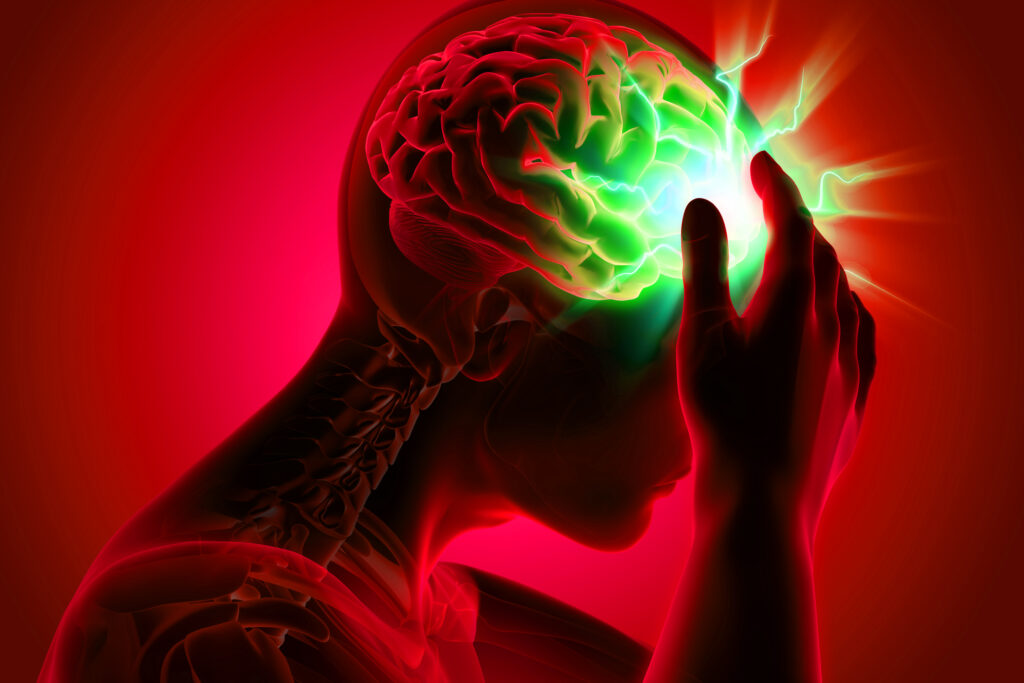Health Conditions
Does Stroke Really Cause Memory Loss?
We navigate through scientific insights, examining the correlation between strokes and memory functions, exploring the underlying mechanisms, and discussing the implications for individuals who have experienced strokes.
Imagine waking up one day and not being able to remember your own name or the faces of your loved ones. Memory loss is a common consequence of strokes, but does stroke truly cause memory loss? In this article, we will delve into the connection between strokes and memory loss to uncover the truth.
Understanding the Connection Between Stroke and Memory Loss
When blood supply to the brain is disrupted due to a stroke, brain cells can be damaged or destroyed. This can affect various cognitive functions, including memory. However, memory loss after a stroke isn’t always permanent or severe. Some individuals experience temporary memory lapses that gradually improve over time, while others may face more long-lasting memory difficulties.
The impact of stroke on memory depends on several factors, including the location and severity of the stroke. Research suggests that strokes affecting the hippocampus, a region of the brain crucial for memory formation, can lead to more profound memory impairments. Additionally, strokes that result in widespread damage to multiple brain regions may have a more significant impact on memory function.

Types of Memory Affected by Stroke
Memory is a complex cognitive process that involves different types of memory systems. When a stroke occurs, it can affect specific types of memory, while leaving others relatively intact.
- Short-term memory: Short-term memory refers to the ability to hold and recall information over a brief period. Strokes can disrupt short-term memory, leading to difficulties in remembering recent events or new information.
- Long-term memory: Long-term memory involves the storage and retrieval of information over an extended period. Strokes may impact long-term memory, making it challenging to recall past experiences, facts, or learned skills.
- Episodic memory: Episodic memory involves remembering specific events or personal experiences. Strokes can disrupt episodic memory, causing difficulties in recalling detailed memories of past events.
- Semantic memory: Semantic memory refers to the knowledge of facts, concepts, and general information. While strokes can affect semantic memory, it may remain relatively preserved compared to other types of memory.
Risk Factors for Stroke-Related Memory Loss
Several risk factors increase the likelihood of experiencing memory loss after a stroke. Understanding these risk factors can help individuals take proactive steps to minimize their impact.
- Age: Advanced age is a significant risk factor for both strokes and memory loss. As we age, the risk of experiencing a stroke and developing memory problems increases.
- Stroke severity: The severity of a stroke can influence the extent of memory impairment. More severe strokes are more likely to cause significant memory difficulties.
- Co-existing medical conditions: Individuals with pre-existing medical conditions such as diabetes, high blood pressure, or heart disease have a higher risk of stroke-related memory loss.
- Lifestyle factors: Unhealthy lifestyle choices, such as smoking, excessive alcohol consumption, poor diet, and lack of physical activity, can increase the risk of strokes and subsequent memory problems.

Impact of Stroke on Memory Function
The impact of stroke on memory function varies from person to person. For some individuals, memory problems may be relatively mild and improve over time with proper care and rehabilitation. Others may experience more severe and persistent memory difficulties that require ongoing support.
Stroke-related memory loss can manifest in different ways, including:
- Difficulty learning new information: Individuals may struggle to retain new information or have trouble forming new memories after a stroke.
- Trouble recalling past events: Stroke survivors may have difficulty recalling specific details of past events or experiences.
- Confusion and disorientation: Memory loss can contribute to confusion and disorientation, making it challenging to navigate daily life.
- Impaired problem-solving and decision-making: Memory problems can affect cognitive functions, such as problem-solving and decision-making abilities.
Strategies for Managing Memory Loss After a Stroke
While stroke-related memory loss can be challenging, there are strategies and techniques that can help manage and improve memory function.
- Establish routines: Creating daily routines and consistent schedules can provide structure and support for memory recall.
- Use memory aids: Utilize memory aids such as calendars, reminder apps, and sticky notes to help remember important tasks and appointments.
- Practice repetition and rehearsal: Repeating and rehearsing information can enhance memory retention. Breaking down information into smaller, manageable chunks can also facilitate memory recall.
- Engage in mental stimulation: Engaging in activities that challenge the brain, such as puzzles, reading, or learning new skills, can help improve memory function.

Rehabilitation Options for Stroke-Related Memory Loss
Rehabilitation plays a crucial role in helping individuals recover and regain cognitive function after a stroke. Several rehabilitation options can aid in managing memory loss and promoting overall recovery.
- Speech and language therapy: Speech and language therapists can work with individuals to improve their communication abilities, including memory-related tasks.
- Occupational therapy: Occupational therapists can assist individuals in developing strategies and techniques to manage memory difficulties in daily activities.
- Cognitive rehabilitation: Cognitive rehabilitation programs focus on improving cognitive functions, including memory, through various therapeutic techniques and exercises.
Support and Resources for Individuals with Stroke-Related Memory Loss
Living with stroke-related memory loss can be challenging, but there are support systems and resources available to help individuals and their loved ones navigate this journey.
- Support groups: Joining support groups can provide a sense of community and understanding, allowing individuals to share experiences and gain valuable insights.
- Counseling and therapy: Seeking counseling or therapy can help individuals cope with the emotional and psychological impact of stroke-related memory loss.
- Online resources and apps: Numerous online resources and mobile applications are specifically designed to assist individuals with memory difficulties. These resources can provide useful tools and techniques to support memory function.

Promising Research and Advancements in Stroke and Memory Loss
Medical research continues to explore the connection between stroke and memory loss, leading to promising advancements and potential treatments.
- Neuroplasticity: Research suggests that the brain has the ability to reorganize and form new connections after a stroke, offering hope for cognitive recovery.
- Pharmaceutical interventions: Scientists are investigating medications that may aid in memory recovery and improve cognitive function after a stroke.
- Non-invasive brain stimulation: Non-invasive brain stimulation techniques, such as transcranial magnetic stimulation (TMS) and transcranial direct current stimulation (tDCS), are being studied for their potential to enhance memory and cognitive abilities.
Conclusion
Stroke-related memory loss can significantly impact an individual’s life, but it doesn’t have to define it. With proper support, rehabilitation, and lifestyle adjustments, individuals can learn to manage memory difficulties and lead fulfilling lives.
By understanding the connection between strokes and memory loss, identifying risk factors, and exploring available resources, individuals and their loved ones can navigate the challenges of stroke-related memory loss with resilience and hope.
Remember, each person’s journey is unique, and seeking professional guidance from healthcare providers and specialists is crucial in developing personalized strategies for managing memory loss after a stroke. Together, we can empower individuals affected by stroke-related memory loss to live well and thrive.
Trusted Health, Wellness, and Medical advice for your well-being



